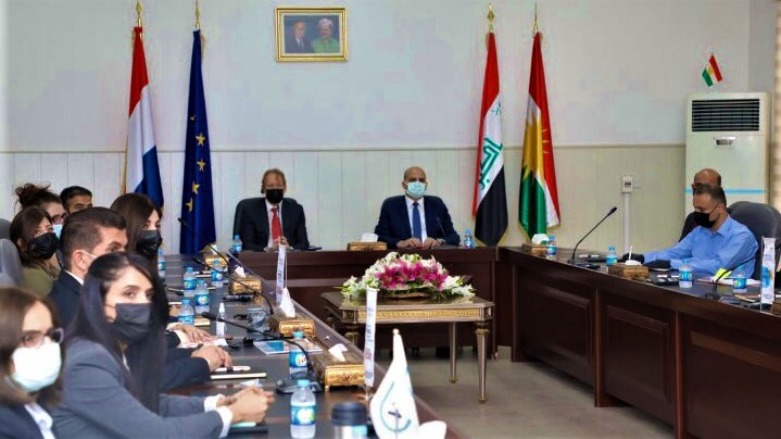Dutch finances project to improve integration of displaced in Kurdistan Region

ERBIL (Kurdistan 24) – Dutch Consul-General to the Kurdistan Region Hans Akerboom on Tuesday attended an urban development seminar and took the first steps toward an agreement with local authorities that includes plans to better integrate large numbers of the displaced community who have fled various parts of Iraq or Syria in recent years.
The Kurdistan Region’s Ministry of Municipalities and Tourism signed a memorandum of understanding with the Association of Netherlands Municipalities (VNG International) in May with the Dutch Consul.
Attended an Urban Development Seminar, organized by the Dutch Association of Municipalities (VNG). Together with Minister of Municipalities @SasanAwny we listened to plans to make cities more liveable, including the integration of refugees. A MoU was signed between @VNGi and #KRG pic.twitter.com/vPi7SypVaj
— Hans Akerboom (@jtmakerboom) August 4, 2021
Dutch Consul Akerboom told Kurdistan 24 that the goal of the LOGOREP II program, as it’s called, is to “look at refugee camps in Duhok and Erbil governorates. It will start with Erbil, with three places, with the goal to reintegrate refugee camps with cities and villages around the camps.”
Elger Vermeer, the senior project manager of VNG International, said during a presentation that the Kurdistan Regional Government (KRG) had selected camps in Qushtapa, Kawergosk, and Basirma for the project in order to improve services in the area.
According to the website of the VNG, the project runs from July 2019 until June 2023 and the “wider objective of the project is to improve prospects for refugees and vulnerable host communities by improving resilience of local authorities and communities,” with the focus on increasing access to “host, IDP (internally displaced persons), and refugee communities to improved basic services and by contributing to extra job opportunities.”
Akerboom said the project, also implemented by the Danish Refugee Council, will focus on improving “public services, like waste management, public transport, infrastructure (including the improvement of roads), and also job creation.”
“The goal is to improve the resilience of the host communities and the refugees.”
Sasan Awni, the KRG’s Minister of Municipalities and Tourism, thanked the Dutch consulate and the VNG for their “continuous support,” and said he hopes that “support will be increased for the sake of the development of other sectors in the Kurdistan Region.”
The autonomous federal region of Iraq hosts more than 930,000 displaced individuals, including 665,828 IDPs and 261,985 refugees who live in host communities and camps where the KRG, along with international and local aid groups, provides basic services such as electricity, health care, education, and security.
In January 2021, with support from Dutch consular officials, the KRG reopened the old Erbil-Kirkuk road to link the city of Qushtapa with three surrounding displacement camps.
Editing by John J. Catherine